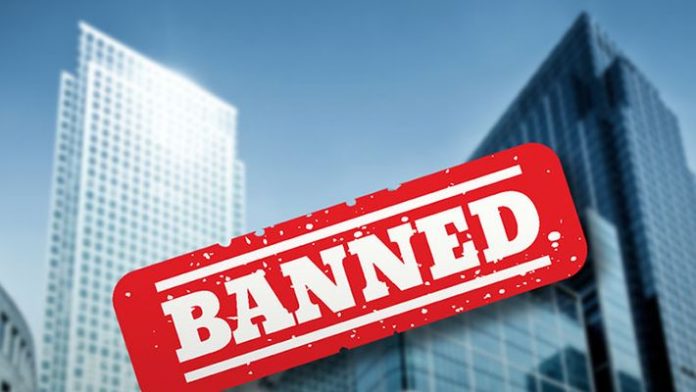ISLAMABAD: The Public Procurement Regulatory Authority (PPRA) has blacklisted some 45 national and international companies over charges of submission of fake/forged documents as well as involvement in corrupt/fraudulent collusive practices.
Document available with Pakistan Today revealed that the authority has banned 45 national and international companies on the request of government institutions, as the companies failed to comply on rules.
Documents state that M/S MECS Engineering (Pvt) Ltd was permanently blacklisted due to non-cooperation and deliberately failing to supply the material against the purchase order. Likewise, Job Testing Services-Pakistan (JTS), Islamabad, was also blacklisted due to involvement in corrupt/fraudulent practices.
Similarly, on the request of Board of Investment (BOI), PPRA banned SAVIN Photocopiers (Islamabad) for providing refurbished photocopier machines.
In addition, Adkings (Lahore) got banned as it failed to fulfill the contractual obligation and supplied sub-standard material, M/S Chaudhry & Sons and M/S Bashir Ahmed were banned on submission of fake bank guarantees, M/S Ali Farms Company (AFCO) was banned on poor performance, M/S TMD International Inc on submission of fake/forged document and M/S New Tech Engineering Services on submission of a fake Pakistan Engineering Council (PEC) registration certificate.
Besides, M/S SS & Co, M/S Sirdar and Brothers (Karachi), M/S UA Enterprises (Karachi), M/S TM Enterprises (Karachi), M/S Ehsan Enterprises (Karachi), M/S Sooraj Construction (Karachi), and M/S Harif Gul Enterprises (Karachi) were blacklisted on the charges of involvement in malpractices/fake billing.
Meanwhile, M/S IT Store & Mobile Centre (Islamabad) was banned on non-supply of items against the purchase order, M/S Interman Trading FZE (UAE) and its local agent M/S MK International were banned on submission of forged/fake authority letter, while M/S Art Enterprises was banned on submitting forged documents.
Furthermore, documents stated that M/S Shah Meer, M/S IZ, M/S Javed Saleem, M/S Khan Logistics and M/S Rana Brothers were blacklisted for providing false/fake documentation.
M/S Ghulam Haider Son was banned on fake documentation, misleading information and exceptionally high rates for items as compared to market prices, M/S TTU Industrial Corporation on non-delivery of welding fittings, M/S Rail Products International (Lahore) on non-supply of diesel-electric locomotives spares, M/S Delta Power Engineering Pakistan on failure in completing the repair work on 313 KVA generator, M/S Noble Resources (Singapore) on fraudulently manipulating the supply of 50,000 metric tons of coal at extremely exorbitant price, M/S Fatemi Traders on non-supply of material within the order validity period, M/S Donfgang Electric Corporation on failure to fulfill the contractual obligations, M/S ZAR-TECH Enterprises on fake/invalid bank guarantee, M/S JS Air on consistently failing to provide satisfactory fight services, M/S FAL Oil Company Ltd on delay in delivery of fuel oil cargo, M/S Trends International on non-satisfactory execution of purchase order, M/S IVY Interface on failing to supply equipment on due dates, M/S Trade Tek International on failing to replace the defective material, while M/S Al-Fateh Security Services (Pvt) Ltd and SKY Lines Builders were blacklisted on non-performance.
Moreover, M/S Honghua International Co Ltd China and its local agent M/S Gastech International, M/S Uniteam (Pvt) Ltd and M/S Fahad & Company have also been temporary banned on different charges.
Interestingly, PPRA blacklists the companies on the request of department complaints but the owners of the companies often start new businesses with other names due to flaws in PPRA rules.
The scribe contacted the PPRA authorities for comments, but was told that the relevant data in this regard was available on the website.




